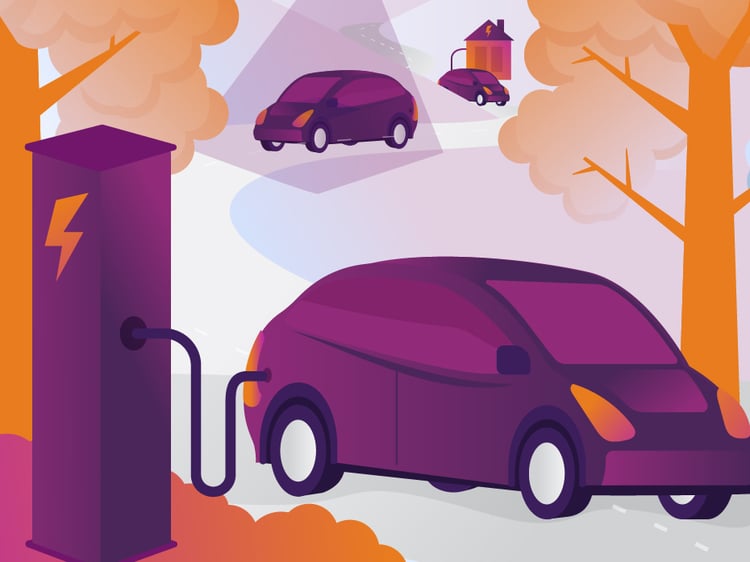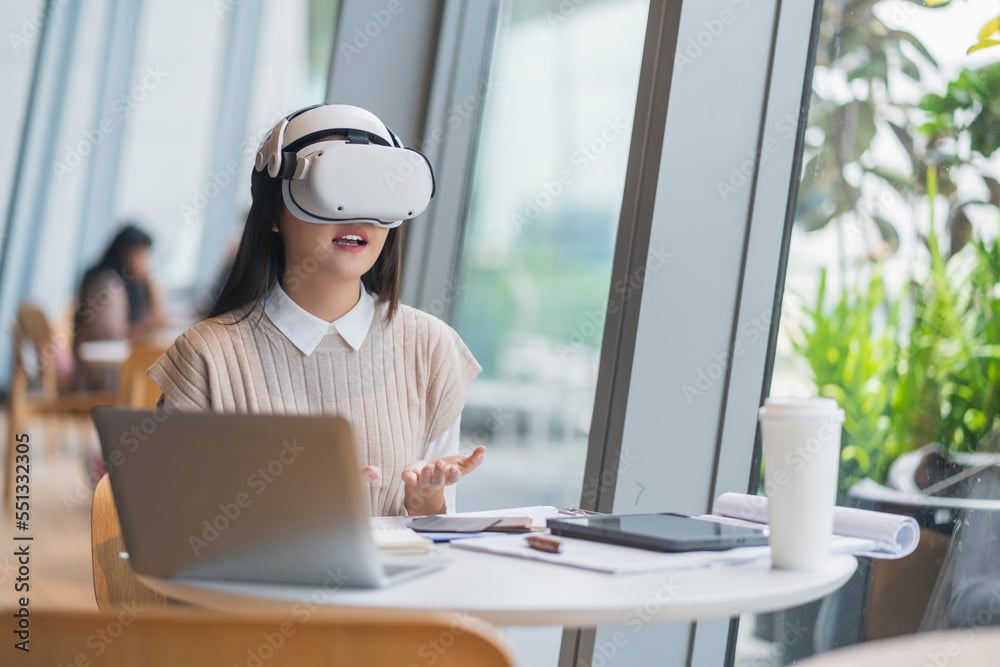Technological convergence has become so prevalent that many people hardly register that the technology we use every day once was two or more unrelated products. As technological convergence matures, we are seeing more innovative, socially impactful convergences—like AI and maternal care—that are transforming the future of healthcare, sustainability and the workplace.
Technological Convergence Is Shaping a Positive Future
There are no standard metrics to measure the influence of technological convergence; however, the benefits are visible in several ways.

Innovation
Innovation and technological convergence have a symbiotic relationship, each driving the other to create new, more efficient outcomes.
By combining technologies such as the internet, artificial intelligence (AI), and virtual reality (VR) in innovative ways, new solutions are being developed in almost every industry to solve critical problems.
Efficiency
Technological convergence impacts efficiency in both our personal and professional lives. Combining single-purpose technology into a unified solution streamlines processes and reduces costs by integrating applications and eliminating the need to purchase multiple products.
Accessibility
Convergence increases access to life-changing technology resources, such as telehealth care and virtual education, that may otherwise be unavailable or substandard in some communities.
Pairing assistive technology with AI provides support for daily living activities and makes life easier, healthier and more empowering for individuals and their caregivers.
It’s hard to predict how technological convergence will ultimately change how we live and work, but we are already feeling its impact on many aspects of our lives.
Technological Convergence in Action
Technological convergence is increasingly being used to improve quality of life and encourage innovation at all levels—from individuals to communities to global enterprises.
Here are a few industries and applications where technological convergence is rapidly gaining traction, disrupting the status quo and effecting change that benefits us all.
Automotive and Technology
Global sales of electric vehicles (EVs) were up 62 percent in the first half of 2022 compared with sales during the same period in 2021.
With EV sales on the rise, the automotive industry is poised to introduce new technologies that can increase sustainability across the industry. Expanding the electric mobility sector creates opportunities for new business models to expand and increase the capabilities of these technologies.
Technology convergence plays a key role in this growth, as software, workflows and business models from disparate industries are brought together to propel innovation in the EV space.
For example, EV meets the as-a-service business model:
SparkCharge’s grid-free EV charging solutions enable EV owners to charge their vehicles without a direct-access charger at home or on the road. For organizations that want to simplify their charging infrastructure, SparkCharge also offers a charging-as-a-service mobile solution.
And AI has joined the electric power conversation with smart technology that enables intelligent power consumption management:
Driivz helps EV service providers optimize their charging infrastructure with an end-to-end EV charging and smart energy management software platform.
I-EMS software uses AI and blockchain-based distributed energy resource management systems and transactive energy software platforms to optimize power for e-mobility, smart homes and smart cities.

Digital Health
Some of the most impactful applications of technological convergence are in the healthcare and wellness industries, where innovators are enabling broader access and more comprehensive medical and personal health services.
Using AI and VR/augmented reality (AR) in conjunction with health and medical technology, these standout organizations are implementing technology that can improve the health and well-being of millions:
Mindset Medical is a sensor-based technology that uses the patient’s smartphone to capture vitals and other physiological measurements to enhance evidence-based remote healthcare and increase medical diagnosis and treatment effectiveness.
NeuroTrainer’s VR platform uses neuroplasticity principles to enhance focus, cognitive performance and mental resilience.
This unified platform includes integrated, immersive VR/AR technology and advanced data analytics to provide a comprehensive care solution for patients from hospital to home.
AI for Personal Healthcare Guidance
AI is shaping the future of health and well-being from diagnostics to preventative maintenance to long-term therapeutics.
By allowing healthcare teams to personalize care plans, AI-driven treatment plans can be laser-focused on individual needs:
This pharmaceutical-free program uses AI-powered digital therapeutics to identify connections between gut microbiome, genetics and lifestyle, then treat the root cause of chronic metabolic, digestive and mental health conditions.
LifeNome combines AI-powered tools for OBGYNs, smart device health monitoring, and telehealth technology to deliver a comprehensive pregnancy health support platform that is based on the mother’s biology, physiology, health, and lifestyle.
The Future of Work Through the Metaverse
The emerging technologies of the metaverse are changing how we socialize, work and learn. Although full metaverse immersion is still on the horizon, technological convergence is bringing notable training and performance improvement capabilities to the workplace.
This immersive 3D workspace enables distributed teams to work, collaborate and train from anywhere on any AR, VR or 2D device.

What’s Next for Technological Convergence?
Looking ahead five, 10, or 20 years, the global effort to conserve resources, improve health outcomes and drive business innovation is going to increase exponentially.
Technological convergence will play a leading role in this effort, providing new and innovative solutions that unify powerful technologies to effect positive outcomes.
